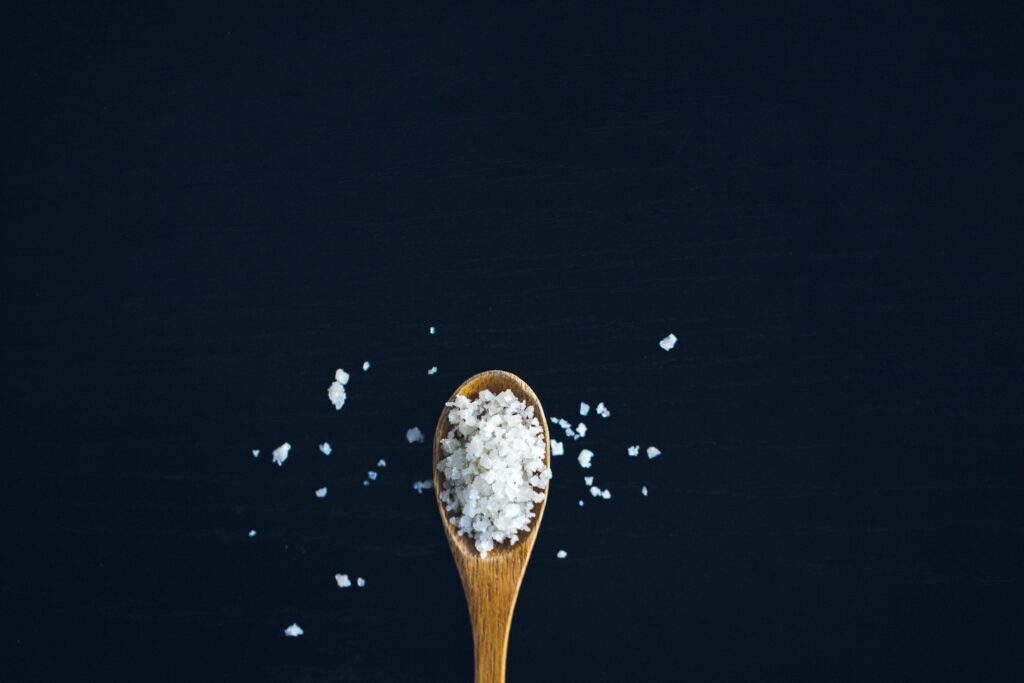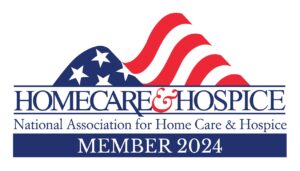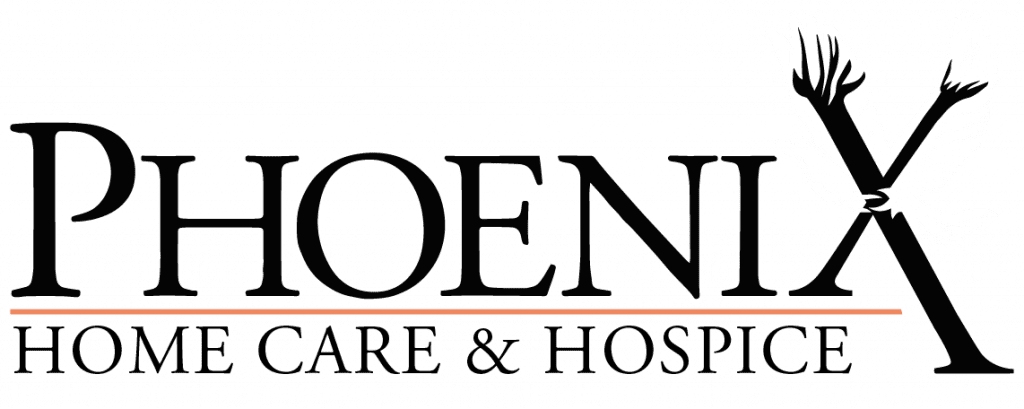Sodium is known to have numerous health benefits and is even a required mineral in the ideal human diet. But it can also be harmful to your health if you consume too much of it.
Sodium is a mineral that helps your body maintain fluid balance and transmit nerve impulses. It’s commonly found in processed foods and added to processed foods during the manufacturing process. There are different types of sodium, including natural salt and table salt.
Natural salt is found in foods such as cheese, meats, and vegetables. Table salt, on the other hand, is refined from rock salt found underground, and it’s used to season or flavor food.
Of the two, table salt has a higher sodium content, which means that consuming too much of it can lead to health problems over time. Unfortunately, most people who follow the typical American diet consume too much table salt.
That’s because it’s used in most processed foods such as salted nuts, canned meat, pizza, and bacon. Even if you don’t add salt yourself, most of the time, it will already be added to your food by the manufacturer or cook who prepared it.
That’s why it’s important to read food labels, avoid foods that contain too much salt, or at least reduce the amount of such foods you consume.
Eating a lower sodium diet has numerous health benefits for patients of home health agencies. Here are some of the most common ones.
Benefits of a Low Sodium Diet for Home Health Care Patients
Lower Blood Pressure
One of the most important benefits of a lower sodium diet is decreasing blood pressure. A diet that’s high in sodium can make you more likely to develop high blood pressure, which is a serious health condition that affects about one out of every four adults in the United States.
If you have high blood pressure, it may mean that your heart has to work too hard and that your arteries are stiff and narrow, both of which are bad for your health.
Lower sodium diets can help keep your blood pressure under control by reducing the amount of sodium you eat each day.
Treat and Prevent Heart Disease
Some patients who receive home health care services do so due to heart disease. High sodium intake has been linked to an increased risk of developing hypertension, which is a major risk factor for heart disease.
A high sodium intake may also increase your risk of developing heart failure, a condition that makes it difficult for your heart to pump blood.
A low sodium diet may help prevent heart disease by decreasing the amount of sodium in your body. On top of that, doctors recommend that people who suffer from heart problems should consume no more than 2,000 milligrams of sodium per day.
Reduce Risk of Kidney Disease
High sodium consumption has been linked to an increased risk of developing kidney disease. A diet high in salt may cause your kidneys to retain water, which can lead to swelling. In turn, this can increase blood pressure and place added stress on the kidneys.
Reducing your sodium intake may help prevent kidney disease, as well as protect your kidneys from further damage if you’re already receiving home health care services for this condition.
Decrease Risk of Diabetes Complications
Diabetes is so much more than a disease that affects your pancreas’ function and raises your blood glucose. In fact, a high sodium diet and the health risks it can pose can also change how this endocrine disease affects your body. Consider these risk factors that a low sodium diet can help home health agency patients avoid.
- High blood pressure and heart disease. People with both type 1 and type 2 diabetes have higher rates of hypertension than those without. By lowering your salt intake, you could lower your risk for high blood pressure and heart disease.
- Kidney disease (nephropathy). Studies show that reducing sodium intake reduces the risk of developing this condition as well as its severity and progression over time. If you already have kidney problems caused by diabetes, cutting back on salt will help keep them healthier longer by preventing further damage to the kidneys’ filters (glomeruli).
- Blindness. Diabetes can cause a number of problems, including retinopathy, an eye disease that often leads to blindness. Reducing salt intake may help prevent this condition by improving blood circulation throughout your body and maintaining optimal eye health.
Reduced Risk of Stroke
High sodium intake is a major risk factor for stroke. The reason for this is that salt causes fluid retention and increases blood pressure, which can lead to a stroke if either condition becomes severe enough. Reducing your salt intake may help lower your risk of stroke, but it’s important to be mindful of other factors as well, including weight and age.
Reduced Risk of Digestive Issues
The negative effects of salt have been known for a long time. Salt can cause stomach cramps, bloating, and nausea which can lead to indigestion or heartburn. Some people may also experience acid reflux and ulcers as a result of it.
If you’ve had any of these problems in the past, it might be worth cutting back on the amount of salt you consume.
Improve Overall Wellness and Quality of Life
It goes without saying that salt is an essential part of any diet. However, it’s important to remember that there’s a difference between too much and too little.
Most people who consume too much sodium for their body weight are at risk for health problems like high blood pressure, stroke, kidney disease, and heart disease. In addition to these risks, excess salt consumption can also be detrimental to your skin’s health.
When it comes to your skin, salt can be a double-edged sword. While it helps to retain moisture in the body by drawing water into cells, it also dehydrates your skin if you consume too much of it. This is especially true with processed foods that contain added sodium, which are often high in fat and calories as well.
That said, reducing your sodium intake can help improve your overall wellness. In fact, eating a low sodium diet can do more than help prevent heart disease, stroke, and other serious health conditions; it can also help you sleep better, feel more energized, and reduce stress and anxiety levels. For patients of a home health care agency, making healthier food choices can improve quality of life as a complement to professional medical care.
Sodium Intake Recommendations for Home Health Care Patients
As a general rule, health experts recommend that adults consume less than 2,300 milligrams of sodium per day. However, if you have high blood pressure or are over age 51, your doctor may recommend reducing this amount even further.
A good way to reduce your sodium intake is to avoid processed foods and fast food. Instead, prepare most of your meals at home using fresh ingredients. It’s also important to read labels so that you know how much sodium is in the products you buy.
How Home Health Care Patients Can Cut Down on Sodium

Choose Fresh Foods
Fresh foods are generally lower in sodium than processed ones because fresh produce contains very little salt.
Fresh fruits and vegetables also tend to be high in nutrients like potassium, which helps keep your blood pressure at healthy levels.
Read Food Labels
The nutrition facts label on food packaging lists the amount of sodium in each serving. Look for foods with less than 140 mg of sodium per serving, and try to avoid those that have more than 300 mg. If you want to cut down on salt even more, aim for foods that contain no more than 5 percent of your daily value per serving. Be sure to carefully review serving sizes; they may surprise you.
Flavor Your Food With Herbs and Spices
Instead of using salt to season your food, try using herbs and spices. They’re often just as tasty, but they won’t add any sodium to your meal. Try adding fresh garlic, ginger root, rosemary, or basil to sauces and soups, or marinating meat in lemon juice and garlic before cooking.
Herbs and spices are not just for cooking. They can also be used as garnishes and seasonings on the table so that you don’t have to reach for the salt shaker.
Limit Processed Foods
Processed foods are often high in sodium because manufacturers use salt to preserve them. While they are tasty and convenient, they don’t offer much in the way of nutritional value.
If you want to cut down on your sodium intake, try limiting or cutting out processed foods and cooking from scratch using fresh ingredients. This will allow you to control the amount of salt that goes into your food.
You can also look for low-sodium options at the grocery store. Look for products that are labeled as “low sodium” or “no salt added.” This will help ensure that you’re not getting more than the recommended daily amount of sodium in your diet. If you don’t see any labels indicating low sodium content, choose foods with a moderate amount of sodium.
Avoid Processed Meats and Cheeses
Processed meats and cheeses can contain a lot of sodium. These foods are often processed with salt, so even if they don’t have a label that says “sodium free,” you should avoid them if you’re trying to cut down on sodium.
Instead, choose fresh meats and cheeses that are naturally low in sodium. Some examples include chicken breast without skin, lean beef, ground turkey, low-fat cheese, and cottage cheese.
The Takeaway for Patients Receiving Home Health Care Services
It is essential that you take enough sodium to ensure good health, especially as you heal from or live with your medical condition. However, too much of it can be harmful. It’s important to keep track of how much sodium you get from the foods you eat and adjust accordingly, especially if you have high blood pressure, are at risk for heart disease or diabetes, or are over the age of 50.
If you have concerns about your sodium intake, talk to your doctor, a nutritionist or ask your home health agency if they have a dietician who can assist you. They can help you figure out how much sodium you need to be healthy and what foods to avoid or cut out of your daily diet to keep your sodium levels in check. And your home health care case manager can help you get the resources you need to follow a healthier diet, even if you cannot cook on your own.
Contact Phoenix for more information on our home health care services.






